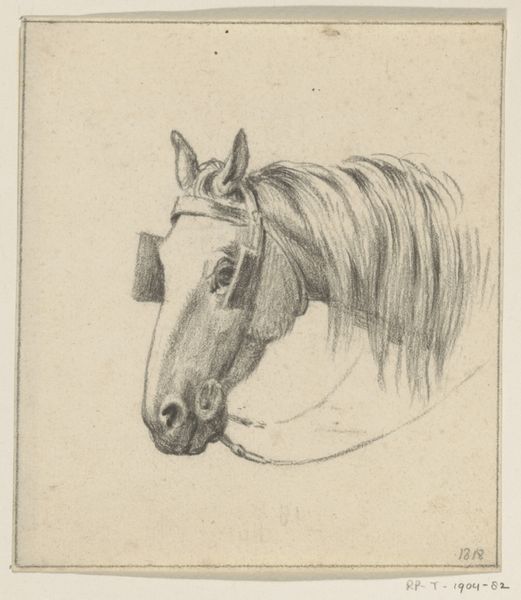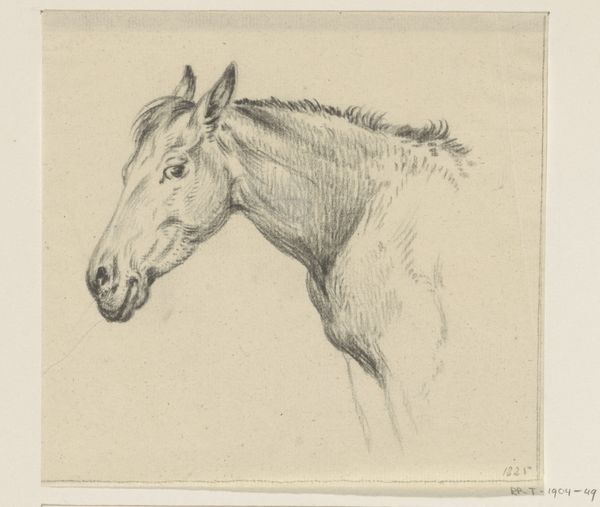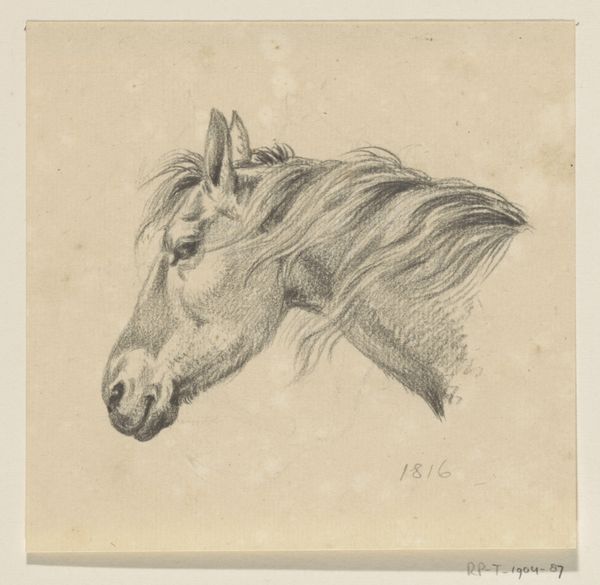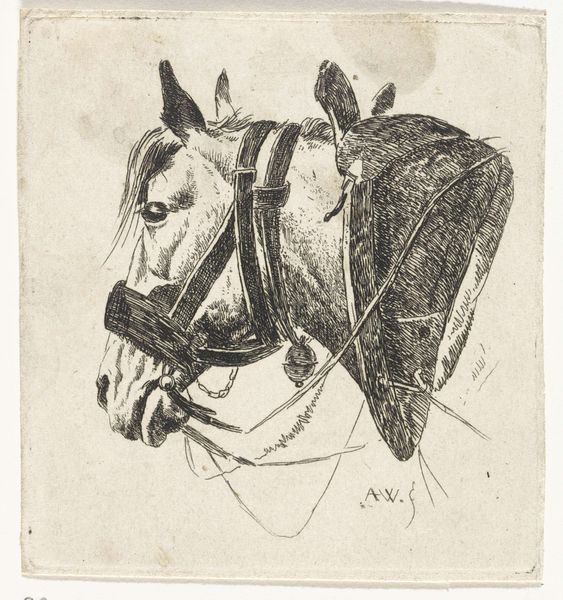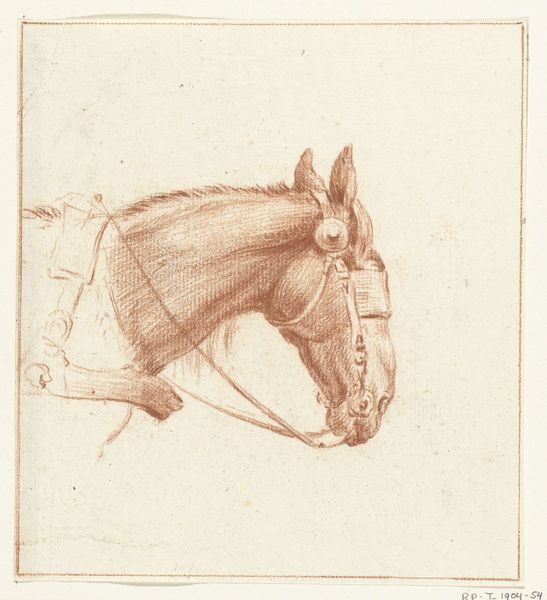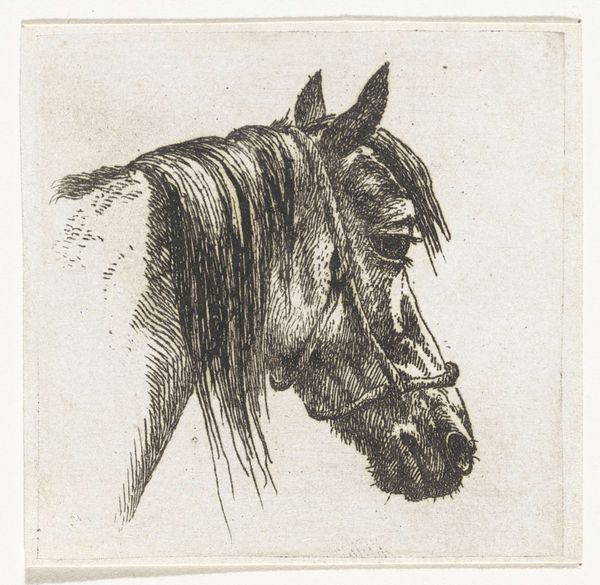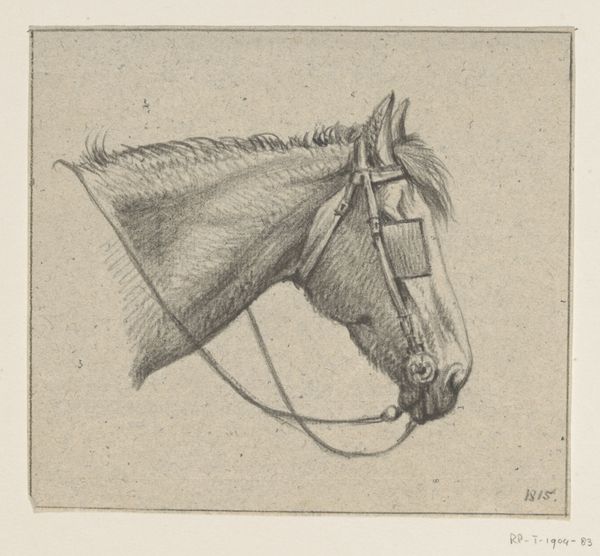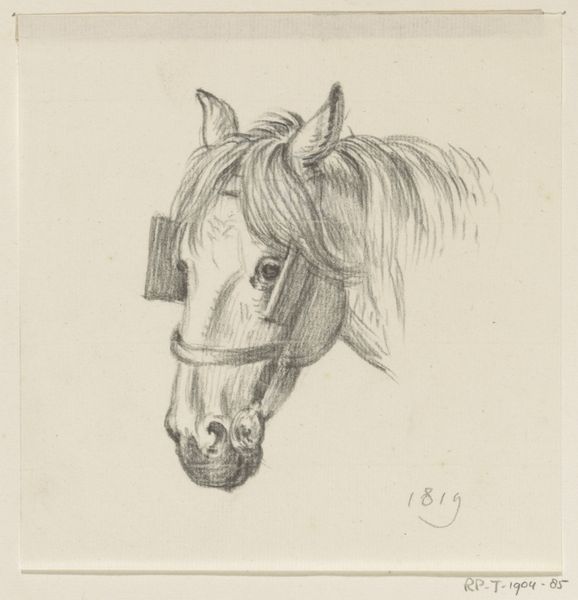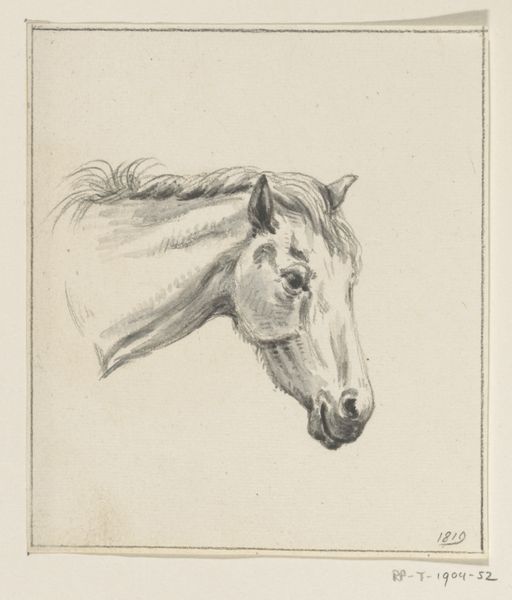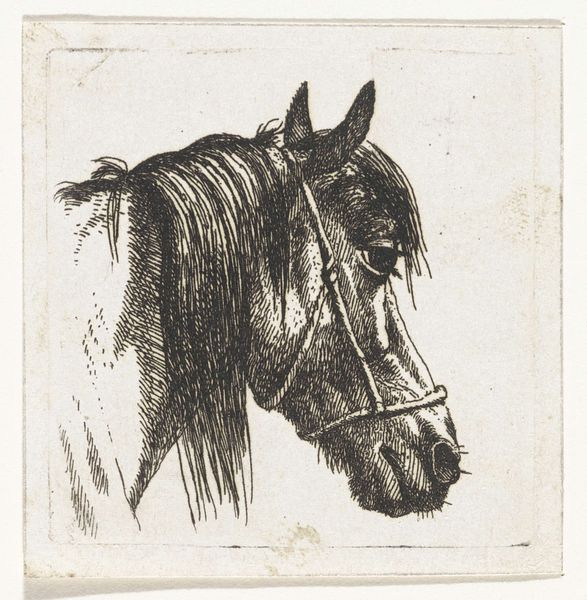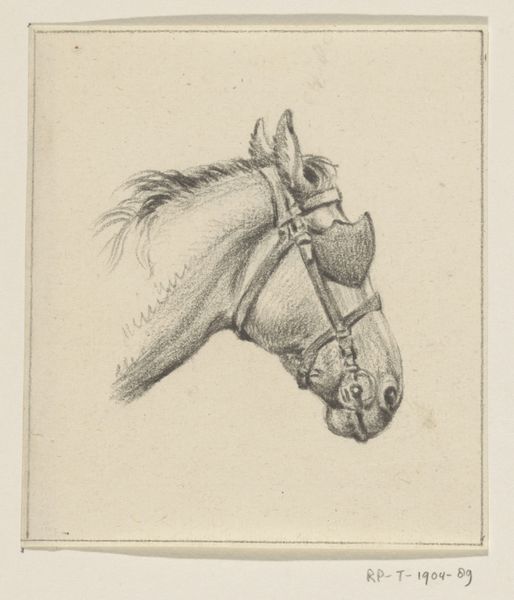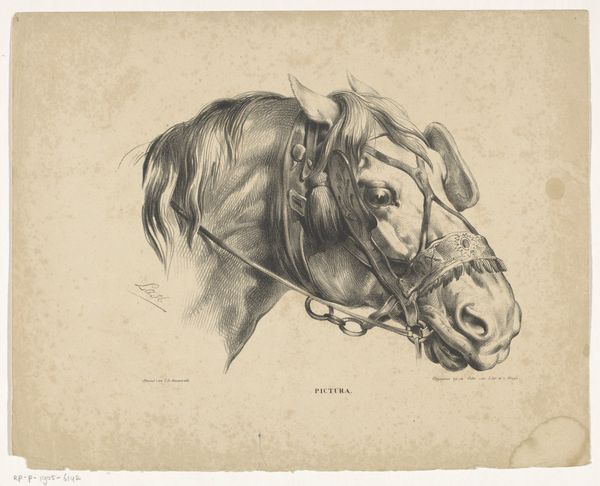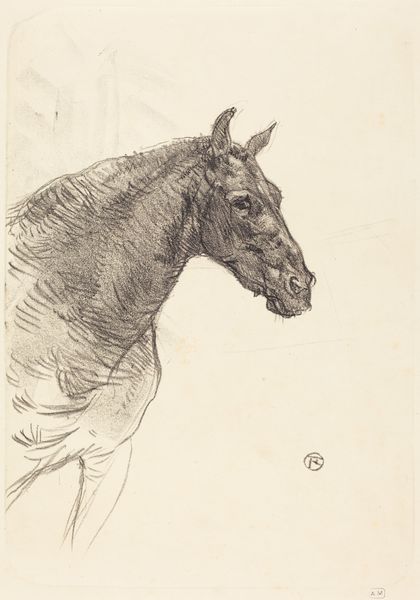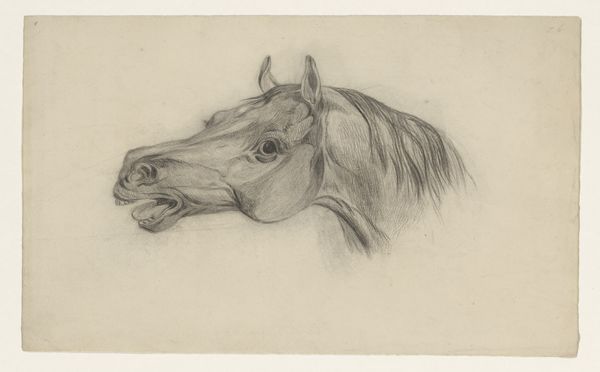
#
pencil drawn
#
toned paper
#
light pencil work
#
quirky sketch
#
pencil sketch
#
personal sketchbook
#
pencil drawing
#
horse
#
sketchbook drawing
#
pencil work
#
sketchbook art
Dimensions: height 151 mm, width 162 mm
Copyright: Rijks Museum: Open Domain
Editor: This is Jean Bernard’s "Head of a Horse with Blinders, Facing Left," made around 1820. It's a pencil drawing on toned paper, and something about it feels unfinished, like a study. What do you see in this piece? Curator: The social context is crucial. The early 19th century saw a rising interest in equestrianism among the European elite. Horses weren't just farm animals; they symbolized status, power, and even military might. This drawing, therefore, could be seen as part of that cultural phenomenon. Do you think Bernard was merely capturing the likeness of an animal or perhaps something more? Editor: That’s a great point about the symbolism! It does make you wonder if it was for a commission or part of something bigger. Were images of horses common in the Rijksmuseum collection during this period, reflecting that cultural interest? Curator: Absolutely. The Rijksmuseum, like many institutions, reflects the prevailing interests of its patrons and the art market at the time. Equestrian portraits and scenes of noble hunts were popular, serving as propaganda for the ruling classes, and as displays of artistic prowess. Consider how museums and galleries often perpetuate certain narratives through the art they display. Does this sketch seem to reinforce or subvert such narratives? Editor: Subvert, perhaps? The sketch’s simple presentation lacks the pomp and circumstance you’d expect from propaganda, making me rethink the status symbol aspect of the horse during the 1820s. Thank you for giving me more cultural perspectives about the artworks. Curator: My pleasure. Reflecting on the socio-political forces that influence art and its presentation, it is necessary for understanding the complexity inherent within seemingly simple drawings like this one.
Comments
No comments
Be the first to comment and join the conversation on the ultimate creative platform.
